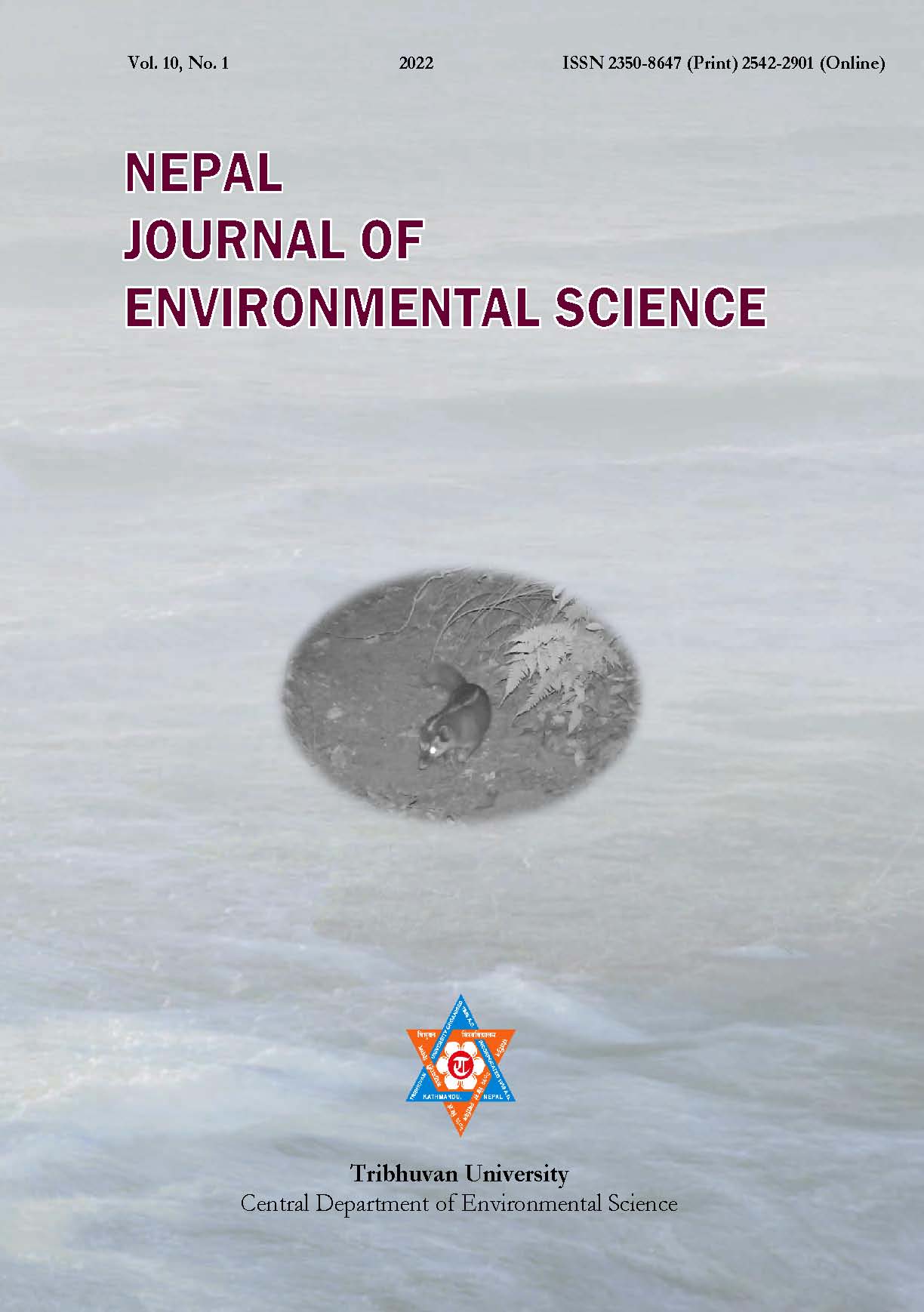Impact of temperature and soil moisture on paddy weed and productivity: A case of Lalitpur District, Nepal
DOI:
https://doi.org/10.3126/njes.v10i1.36659Keywords:
Moisture, productivity, rice, temperature, weedAbstract
Rice (Oryza sativa L.) is a major food crop for around 60% of the global population. The production of rice has been challenged by various biotic and abiotic factors. Temperature and soil moisture are the major abiotic and weeds are the major biotic factors for yield loss. The present experiment was conducted to investigate the impact of temperature and soil moisture on rice weed and rice productivity. The experiment was carried out under different temperatures (ambient, ambient +2°C, and ambient +3°C) and soil moisture (ambient, 25-30%, and 10-15%) conditions for the entire crop growth period from June to October 2014. Rice weeds were recorded after 28, 47 and 93 days of rice transplantation for varied soil moisture. Similarly, at varied temperature weeds were recorded after 19, 44 and 66 days of rice transplantation. The results showed that weed density increases under elevated temperature at 2°C and 3°C than under an ambient condition (existing in the surrounding area). An experiment on soil moisture stress indicates a reduction in rice productivity as the density of weed increases with the deficiency of soil moisture. Further studies on temperature and soil moisture resisting rice variety are essential. This study suggests that research on the control of weed species, targeting those weeds benefited at elevated temperature and soil moisture stress conditions, is necessary.
Downloads
Downloads
Published
How to Cite
Issue
Section
License
Copyright (c) 2021 Central Department of Environmental Science, Tribhuvan University

This work is licensed under a Creative Commons Attribution-NonCommercial 4.0 International License.
This license enables reusers to distribute, remix, adapt, and build upon the material in any medium or format for noncommercial purposes only, and only so long as attribution is given to the creator.




